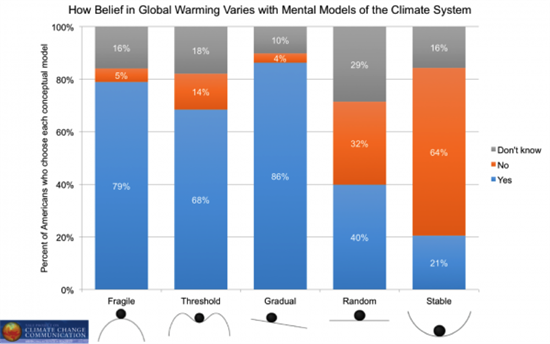Ros Donald
02.05.2014 | 1:30pmA new study reveals significant gaps in many north Americans’ knowledge about climate change. But the vast majority want to know much more, and 75 per cent want to see climate change taught in schools according to new research from the Yale Forum on Climate Change Communication. We’ve picked five of the most interesting graphs from the research.
1. Hunger for more knowledge
The study also revealed many Americans don’t have a very high opinion of their own knowledge about climate change. Only one in 10 say they are “very well informed” about how the climate system works or the different causes, consequences or potential solutions to climate change. 51 to 52 per cent say they are “fairly well informed”.
But a large majority – 75 per cent – say they would like to know more and, as the graph below shows, 75 per cent say schools should teach children about climate change. 68 per cent say they would welcome a national education programme to teach Americans about the issue.
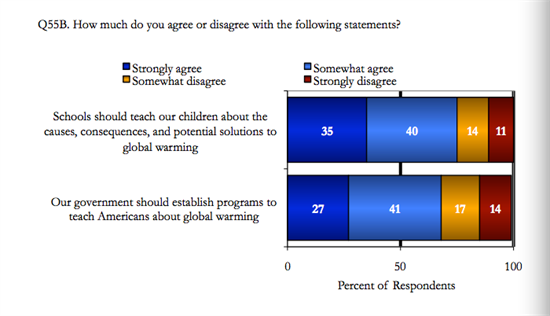
2. Confusion about the causes of climate change
The study finds that 57 per cent of Americans know the greenhouse effect refers to gases in the atmosphere that trap heat, and 50 per cent understand human activities are the cause of extra warming in the atmosphere.
Most people correctly identify activities such as burning fossil fuels and running cars and trucks on petrol as major contributors to climate change. But there remains a large number of people who are confused about the causes of climate change. 73 per cent incorrectly think the hole in the ozone layer contributes at least a little to climate change, for example.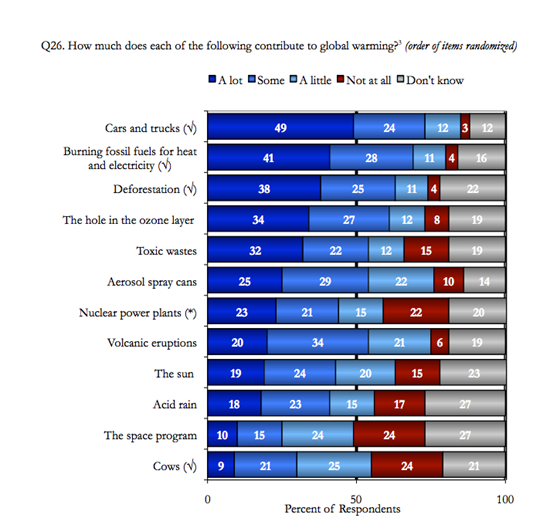
3. Trust: Scientists, specialist media and museums come out top
Americans’ most trusted sources of information about climate change are the National Oceanic and Atmospheric Administration, the National Science Foundation, scientists, specialist channels showing science programmes and museums.
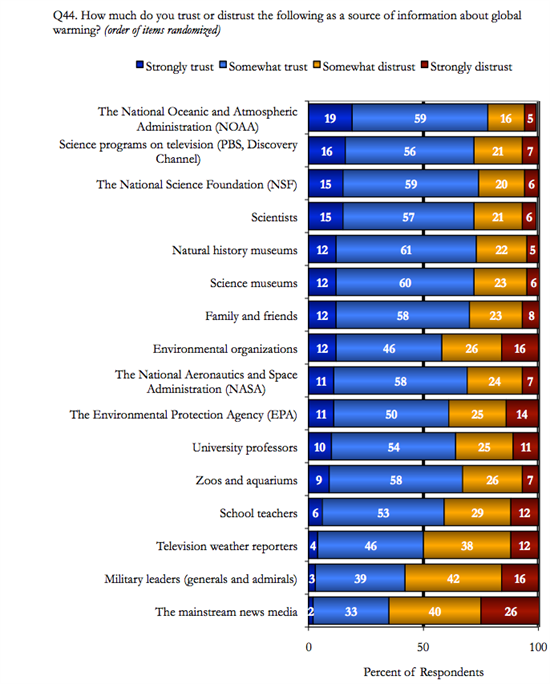 4. Mental models
4. Mental models
The survey also wanted to see how Americans picture the climate system – do they think that it’s vulnerable to human activities, or do they believe it’ll stay stable regardless of what humans do?
It offered five different descriptions of climate models and asked respondents which most closely corresponds with their own perception of the climate system:
Fragile: Earth’s climate is delicately balanced. Small amounts of global warming will have abrupt and catastrophic effects.
Threshold: Earth’s climate is stable within certain limits. If global warming is small, climate will return to a stable balance; if it is large, there will be dangerous effects.
Gradual: Earth’s climate is gradual to change. Global warming will gradually lead to dangerous effects.
Random: Earth’s climate is random and unpredictable. We do not know what will happen.
Stable: Earth’s climate system is very stable. Global warming will have little or no effects.
As the graph below shows, most people chose ‘threshold’, indicating that they think the more the climate warms, the worse the effects will be.
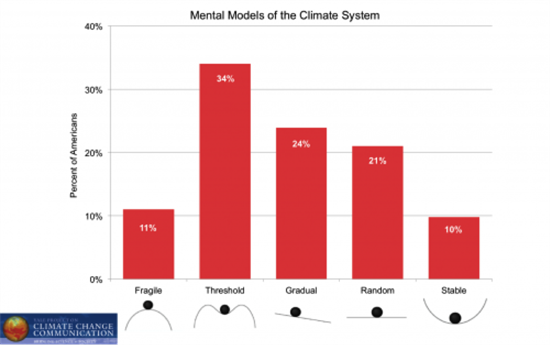
Americans’ mental models of the climate system (Data Source: Leiserowitz et al., 2010).
5. Cross-referencing mental models with ‘belief’ in climate change
The researchers also asked: Do you think global warming is happening? Overall, 63 per cent said they think it is, 19 per cent said no, and 18 per cent said they didn’t know.
Cross-referencing these answers with the previous question provides some interesting insights into people’s ‘mental models’ of climate change.
The majority of Americans who chose the Fragile, Threshold or Gradual models said they think climate change is happening. Meanwhile, most of those who chose the Random model either said they didn’t know whether climate change is happening or do not accept that it is. Respondents who chose the Stable model tend not to agree climate change is happening.
